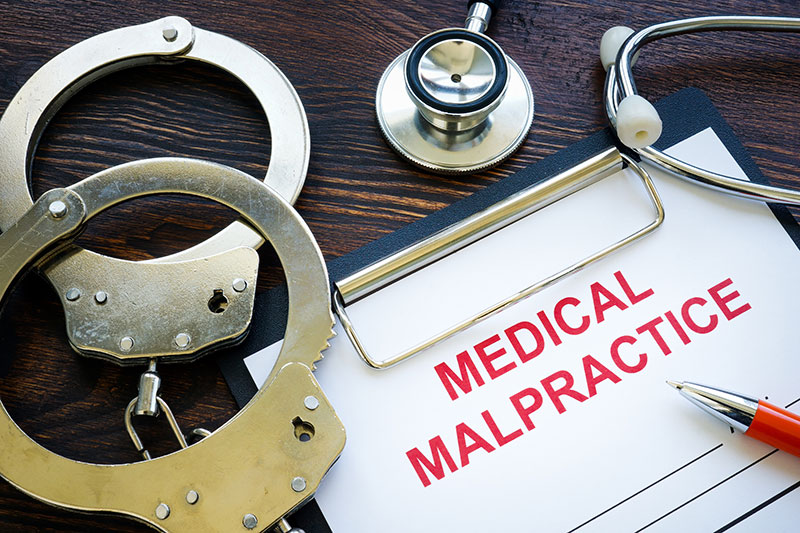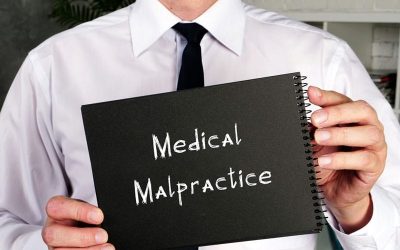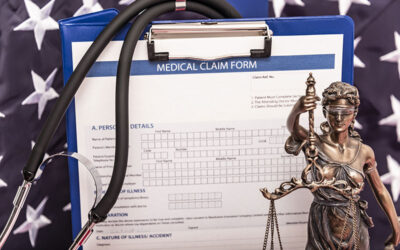Attorneys require the claimant’s medical records to extract the evidence necessary to prove medical malpractice cases. Accurate medical record analysis is a vital first step to determine certain facts and identify the strengths and weaknesses of the case. Four key elements they have to prove in a medical negligence case are Duty of care, Breach of duty, Causation and Damages. Attorneys, medical reviewers as well as claimants must be aware of all important legal terminologies related to medical malpractice cases.
Take a look at some common terms related to medical malpractice. Some of these terms are relevant to personal injury cases in general –
Arbitration – A solution to settle a dispute outside the court. Without going to trial, an “arbitrator” listens to the arguments by both parties and makes a decision.
Affidavit – A voluntary written statement or declaration of facts that has been written down and confirmed under oath.
Birth Injury – A physical injury suffered by a baby during delivery – that may cause permanent disabilities or even death.
Compensatory Damages – Compensation for lost wages, medical bills, and pain and suffering.
Damages – Money awarded by a court to the injured person to compensate him or her for the harm caused by the negligence of another person. While general damages refer to pain, suffering and loss of comfort, special damages refer to the financial expenses or losses incurred.
Deposition – The sworn testimony of a witness or a question-and-answer session used in the pre-trial “discovery” process to get more information about the case.
Directed Verdict – Refers to a judgment entered by the judge in a trial, without allowing the jury to participate.
Discovery – This pre-trial process allows both sides to obtain information, statements and copies of documents from the other party that relates to the claims in the case.
Disciplinary Hearing – A hearing or professional review conducted by any state or federal administrative agency or regulatory authority responsible for regulating professional conduct.
Dismissal with Prejudice – Based on the merits of the case, this order bars the plaintiff from filing another lawsuit on the same claim.
Dismissal without Prejudice – This order dismisses a case, but the court preserves the plaintiff’s right to sue again on the same cause of action.
Established Customary Standard Of Care – Degree of care that the average qualified doctor would provide to a patient.
Evidence – Testimony of a witness, exhibits, and an object, written documents or any fact presented in court at any stage of court proceedings.
Exhibit – A document or object that is offered as evidence during a trial or hearing.
Fraud – Fraud refers to a physician allegedly committing malpractice and conceals it from patient or makes additional misrepresentations, which adversely affects the treatment.
Indemnity – This agreement ensures proper compensation, wherein one party financially protects another against an anticipated loss.
Interrogatories – This form of discovery includes written questions asked by one party in a lawsuit, for which the opposing provides written answers, under oath.
Judgment – This is the official decision by a court and it can be judgment notwithstanding the verdict, consent judgment, default judgment, judgment based on the pleadings, summary judgment or judgment and sentence.
Liability Risk – While liability refers to legal responsibility or obligation, liability risk is loss or exposure due to any negligent act.
Locum Tenens – Refers to physicians who work on a temporary basis, or substitute at hospitals and health facilities.
Misdiagnosis – Refers to incorrect diagnosis of a particular illness or health-related issue, caused by medical negligence when a healthcare provider fails to follow the acceptable standard of care.
Nursing Malpractice – An intentional or negligent act committed by a nursing professional that causes physical, financial, cognitive, or any type of damage to a patient in their care.
Nursing Home Malpractice – Any intentional act committed by a nursing home professional which causes injury to a resident.
Punitive Damages – Meant to punish the doctor or the person who caused the harm, rather than compensate the patient.
Pleadings – These are written statements of fact and law filed by the parties in a legal dispute.
Rebuttal – Refers to evidence that attempts to explain, counteract or disprove facts given by the opposite party.
Rebuttal Witnesses – Witnesses who are introduced to explain, keep away, counteract, or invalidate facts given in evidence by the adverse party.
Subpoena – A court issued legal document that orders a person to appear as specified and give testimony and/or produce evidence.
Attorneys may also have to deal with large-volume, unorganized medical records from various sources. Medical records services provided by professional providers can help in identifying the medical records relevant to the case and getting clear case summaries.




